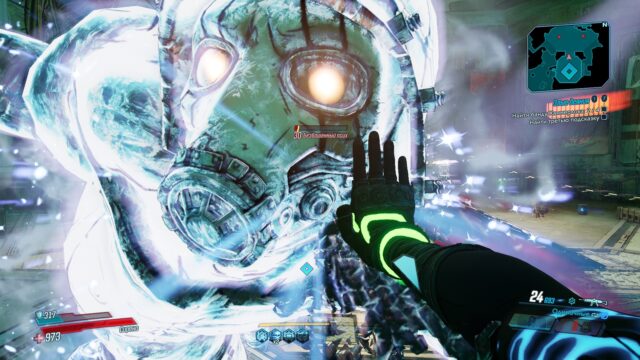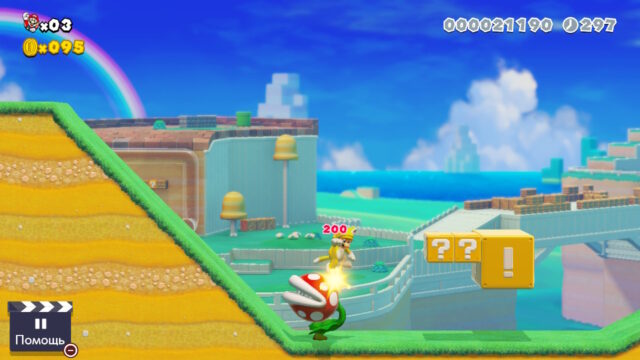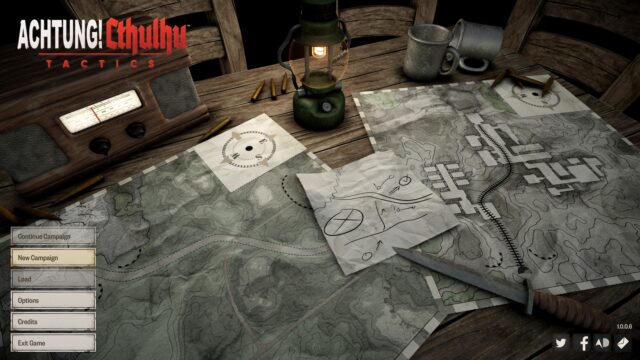Gunpoint Review
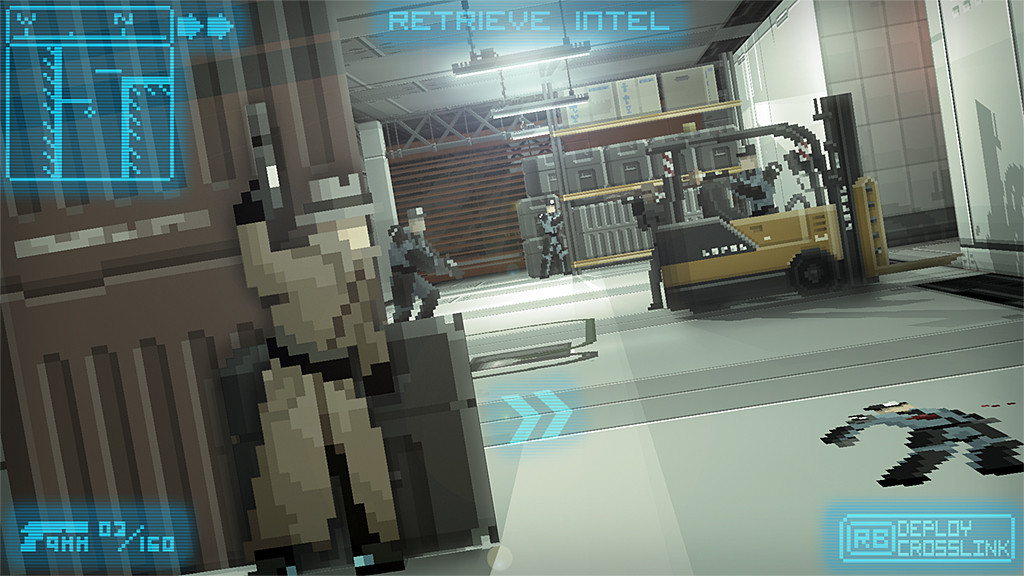
Gunpoint is an action-puzzle game about high-speed hacking of electronic systems and jumping over tall buildings (over or through them) in a single leap. This detective mini-saga about high technology was created by Tom Francis, known for his articles in PC Gamer, and this is his first game. Did he manage to cross the Rubicon? We will find out now.
Gunpoint – a funny name for a game about hacking electrical stuff, isn’t it? I can’t think of a single reason why they didn’t call it Powerpoint. Probably, they lacked imagination.
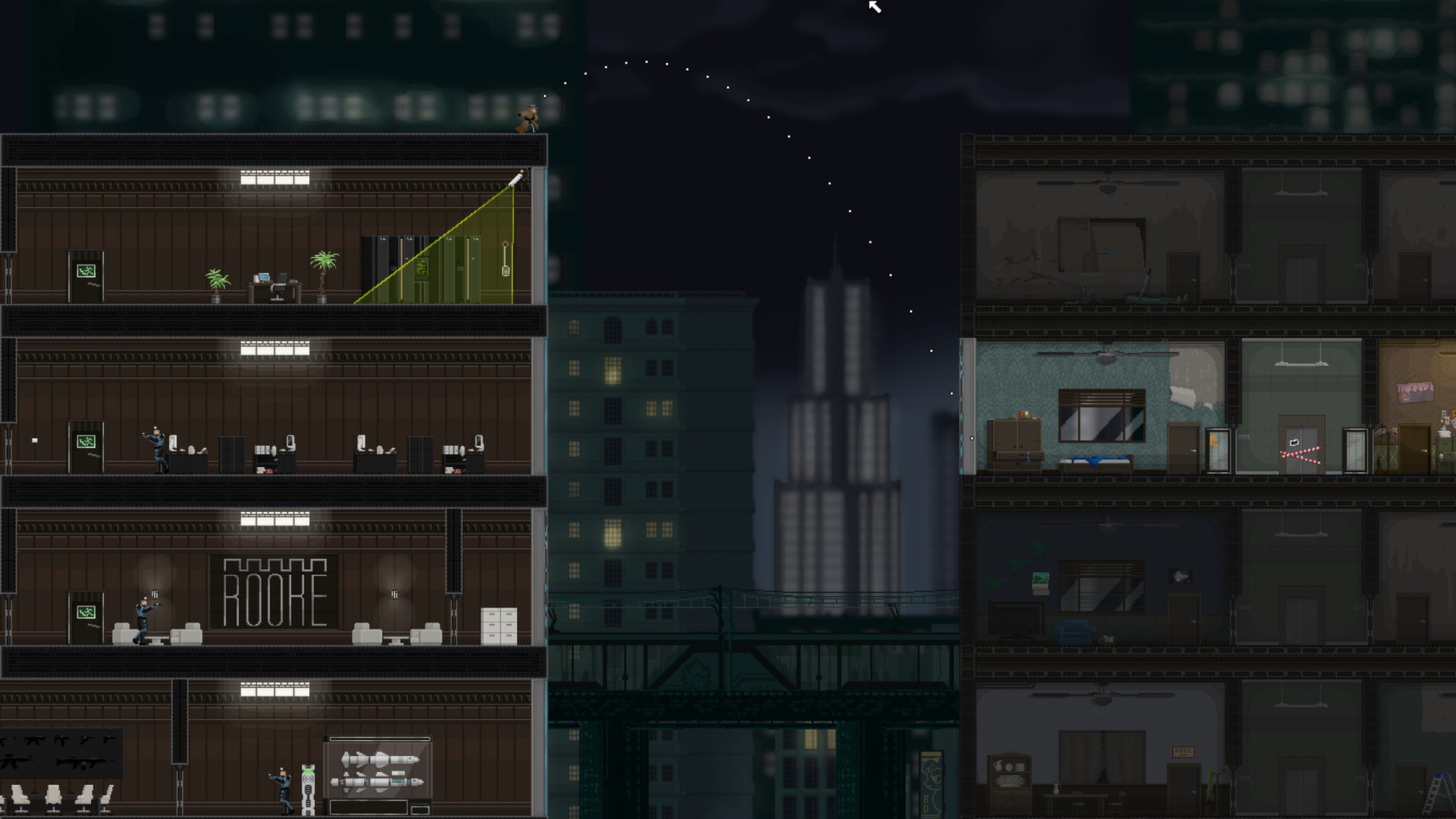
Actually, there are guns here, but if you want to achieve something here, you’ll have to avoid gunfire. You’ll also have to do a lot of jumping down from tall buildings and jumping into these very buildings through mirrored doors. Inside, you change the wiring on the doors, cameras, motion sensors, and outlets so that they activate things they shouldn’t. You’re a malicious electrician, capable of rewiring the entire house for your own sinister benefit, without even touching the wires themselves. A special device does all the work for you, allowing you to remotely access any device in the building, no matter where you and your oversized coat are hiding.
Scroll the mouse wheel up and you’ll enter the hacking mode, where a simple system of Connecting One Thing to Another allows you to use regular switches to open doors, cameras to control elevators, and elevators to turn outlets into shockers. The colorful lines on the screenshots may look intimidatingly complex, but in practice, it’s all quite simple. Want the motion sensor to turn off the light in the secure room? Connect a line from the sensor to the lamp. Walk past the sensor. Done.
Towards the end of the game, the mechanics become more complex, with doors triggering on timers and wires being divided into different colors (for example, only a green switch can open a green door), and you’ll have to quickly plan your actions while remaining unnoticed. Ultimately, it all comes down to opening doors, because doors are the main enemy of a person who infiltrates someone else’s territory to steal information. And you are exactly that person, so you have to dress in a cool hat and a high-collared coat to make a living through industrial espionage.
In addition to the mentioned wiring tricks, you can jump long distances and fall from even greater heights without harm to your health – as long as the guards don’t notice you, as they are accurate enough to shoot you down in mid-air like a passing bird. The speed and smoothness of these super jumps (thanks to the techno-pants, no doubt) are excellent. I didn’t expect such responsiveness from a game that looks so unassuming. And that’s not the only reason why Gunpoint resembles the more skillful Hotline Miami. The other side of the elegant superheroics with glass-jumping is the falls from too great a height: face down, right in front of an armed enemy who won’t even be surprised. It’s like some kind of fierce simulator of Some Mothers Do ‘Ave ‘Em.
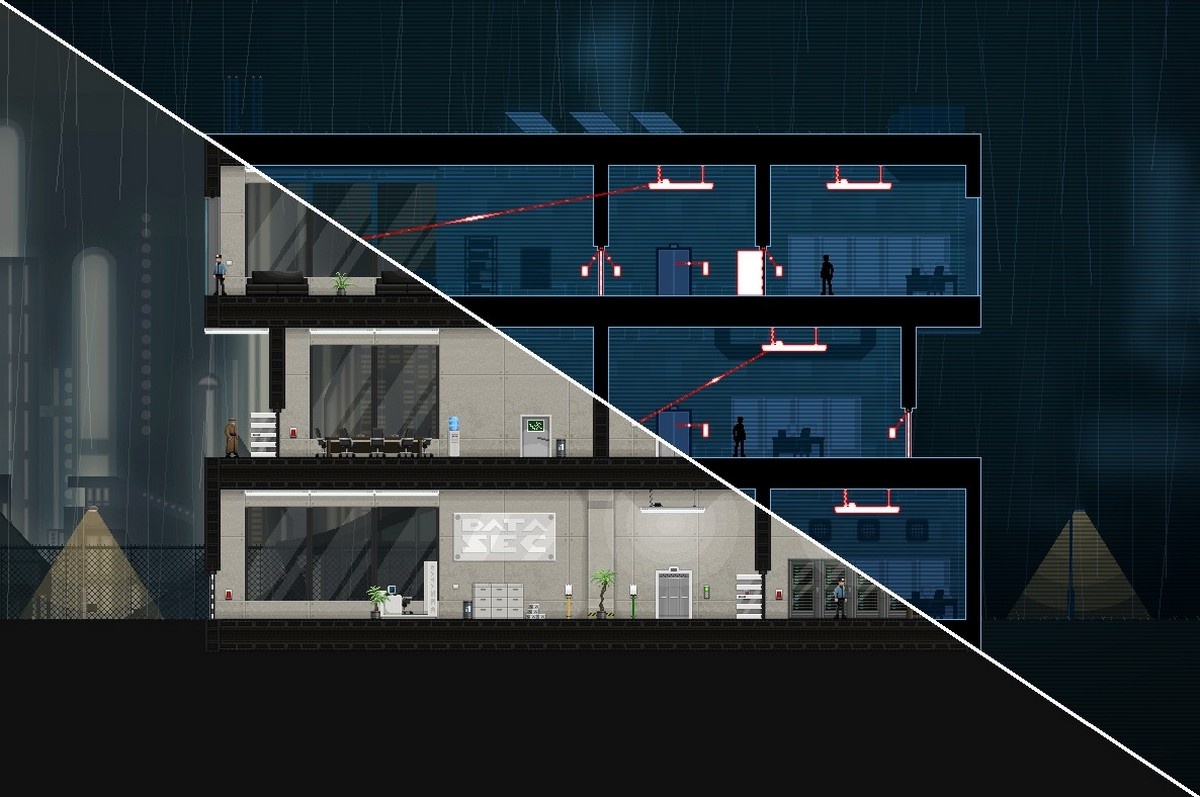
Management, like hacking itself, is brilliantly simple and very intuitive. You click with the mouse, hold the button, and drag the line where you need it – where you release it, there you stick, like Spider-Man. Unless it’s on glass – in that case, it will shatter with a crash. Unless you have purchased an upgrade to mute that sound. You can jump right behind enemies to stun them or, if desired, turn them into a bloody mess (hello again, Hotline Miami). At the end of the mission, this will be taken into account when calculating deaths and stealth rating, and here another inspiration from Gunpoint and Hitman is clearly evident. You can be a complete psycho or a ghost, or something in between. It somewhat affects the plot, but in reality, you are free to do whatever you want, no one forces you or judges your actions.
The reason for all your jumps, hacks, and dealing with security is that you are well paid for it by various amoral directors, tough policemen, and intimidated victims of machinations. I must admit, I find the story about the war between weapon mega-corporations, hiring you and sacrificing their own personnel, where everyone is playing a double, triple, or who knows what game, slightly oversaturated and convoluted, but the endless flow of jokes and comedic profanity (you will immediately recognize Francis’s style if you are familiar with his articles) helped me not to bother and skip the dialogues, deciding for myself that everyone here is somewhat scoundrels and it doesn’t really matter whose side I’m on. All response options are divided into polite, rude, and talkative, so the developer allowed me not to think about the plot for a long time.
This is one of several ways in which Gunpoint reflects Francis’s other career – he has played hundreds, if not thousands, of games in his lifetime: good ones, bad ones, and the endless colorless mass in between. Therefore, he, like me, understands perfectly well when his time is wasted on some excesses, on a lack of care for the player, or on cynical coercion. Gunpoint is straightforward, gets straight to the point, and hardly annoys at all. If you want to start a mission without delving into all the dialogues, you can do it. If you want to save and quit at any time – you can do it. Messed up and want to replay the last seconds of a failed mission? Please. Don’t want to listen to lectures on how to use new things? However you like. A multitude of such details, brought together, create a game where the time spent pleasantly is maximized, and the downtime of your brain is minimized.
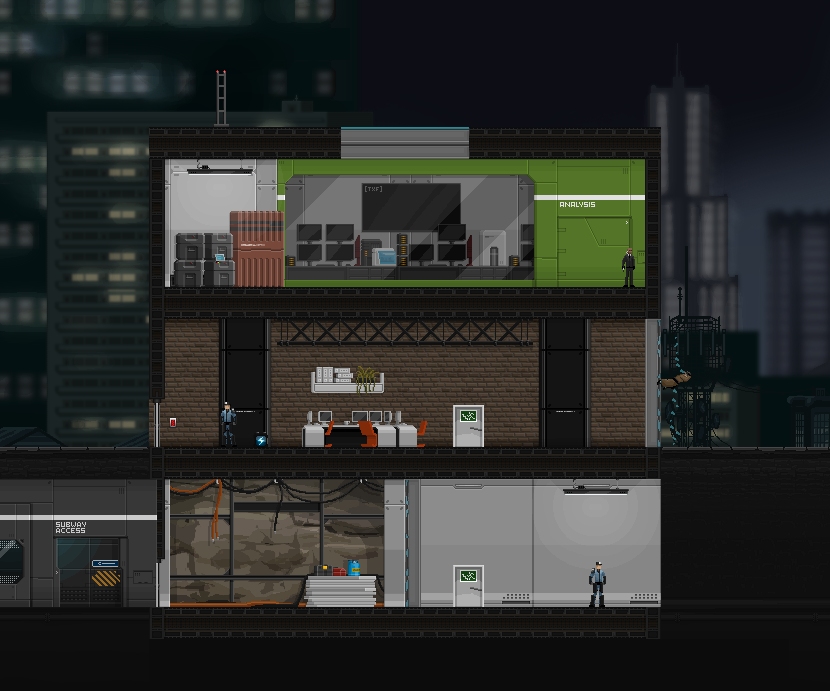
Although the game is perhaps too simple. Along with the pleasant ability to rewind time by 1, 5, or 10 seconds and redirecting unnecessary upgrades to something more useful, Gunpoint sometimes loses the necessary complexity. Especially in later missions, when success is obvious right away and all that is required is time.
In addition, completing levels, although it offers some freedom in terms of options for manipulating wiring and neutralizing guards, all actions still come down to opening doors and collecting colored key cards (in particular, activating fuse blocks that allow hacking other devices in the building) in the good old tradition, and this limits the variations of controlled chaos, which the mechanics of Gunpoint are very conducive to. I have already seen unofficial maps where the game’s potential allowed for exceptional things to be created.
The game can be completed in just 3-4 hours and stops before its mechanics have a chance to fully unfold. I get the impression that this is only the beginning of something bigger. Maybe it is so (considering that on the day of release, the game topped the Steam charts), but with such a low price, polish, thoughtfulness, and attention to the player, I have absolutely no complaints. Moreover, in the last level, you can kick doors down, often right in someone’s face, and that alone makes up for a lot, once again reminding of the brutality of Hotline Miami.
Perhaps the game’s potential is not fully realized, but for a debut, Gunpoint is very impressive – a killer mechanic that makes you crave more, seasoned with style and attention to detail. I would like to separately thank the author for the brilliantly selected soundtrack: noir keyboard motifs maintain the atmosphere of classic spy movies in the game instead of cyberpunk, which might come to mind first.
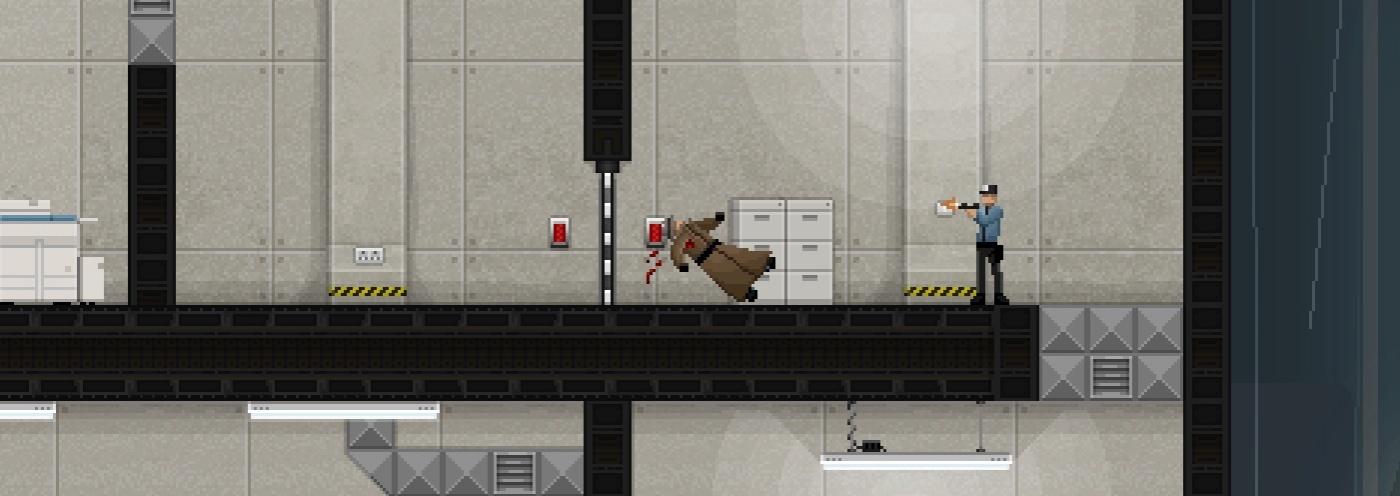
Gunpoint is available for $10, the game can be buy on Steam or directly on the developer’s website There is also a demo version available.
Share
Discuss
More Reviews
